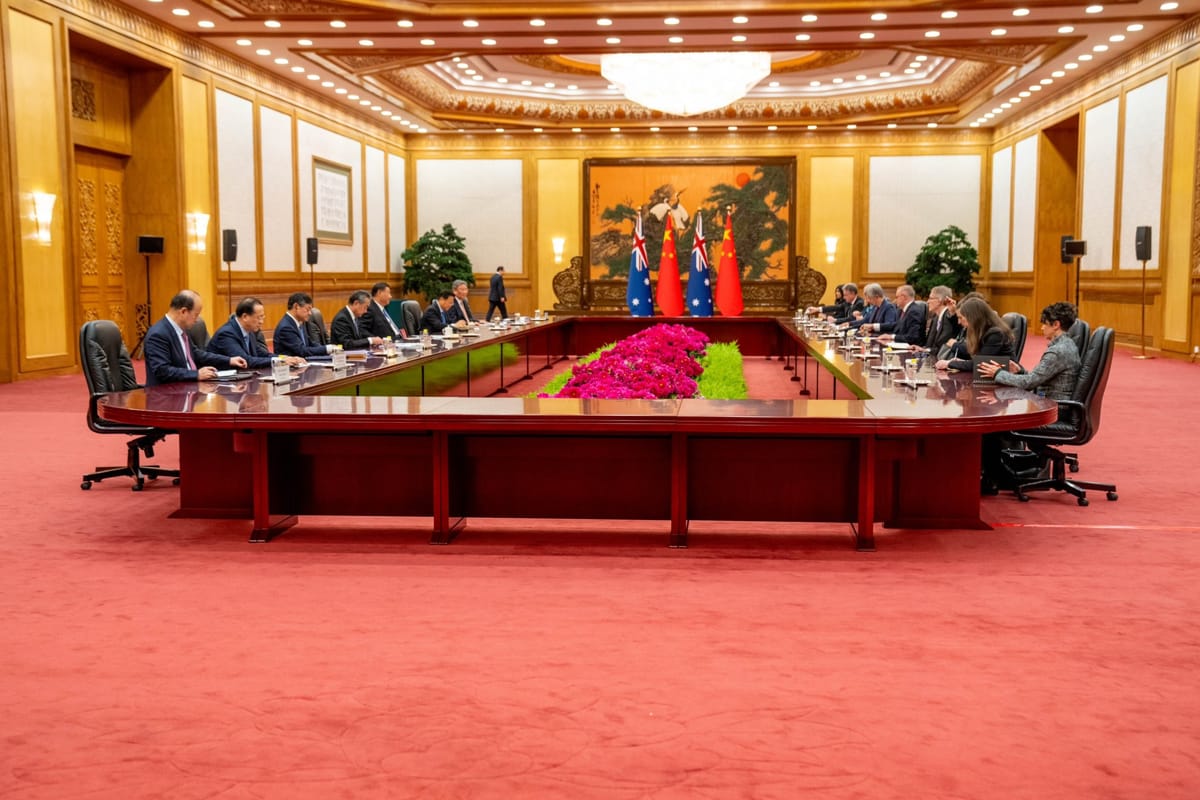This week in Beijing, Australia’s Prime Minister Anthony Albanese told China’s President Xi Jinping that “we can all benefit from greater understanding that comes from high-level dialogue and people-to-people links”. Bilateral talks – the “high-level dialogue” part of this equation – are usually accompanied by press releases and media analysis. Less often do we find discussion of the nature and role of “people-to-people links”.
These people-to-people connections refer to the ongoing, biding friendships and business relationships between individual people across national boundaries. They are the networks, shared meals, laughs and an interpersonal recognition of something in common – a shared understanding.
The phrase people-to-people links is used to refer to a somewhat softer heart of bilateral relationships. This “softer” side of diplomacy - the sort that is conducted by people from Australia and China in everyday settings - is often left unexamined, belying the importance of these relationships in higher order politics and the necessary facilitators that are required to maintain them.
This week politicians have regularly invoked the strong and continuing people-to-people relationships that have functioned as a stabilising rock during turbulent geopolitical tensions. My recent trip to China to engage with the Chinese academic community engaging in researching and understanding Australia was an overwhelming testament to the power of these everyday connections.
This doesn’t mean that people-to-people relationships – or everyday diplomacy – is immune from the impact of political tension. Chinese students and their families, for example, report feeling uncertain about traveling to Australia while bilateral tensions are high. Feelings of exclusion and discrimination have risen among Chinese communities in Australia over the last five years. The strong sense of relief that I felt among people focused on Australia in China that the relationship was entering a more positive phase indicates that the public is indeed personal.
The long-term and active maintenance of people-to-people connections is vital to weathering political storms. Universities form a key platform for the facilitation of these relationships. Students from China study in Australia. Australian students – often via the government’s New Colombo Plan scholarships – study in China. Academics are encouraged to collaborate internationally, and the global flow of academic talent is essential to institutional rankings and careers.

In China, Australian studies as a field of academic specialisation, has been slowly and intentionally built with support from both Australia and China over a period of more than 40 years. Academics and students with an interest in understanding Australian literature, arts, culture, history, multiculturalism, indigenous cultures and economics have been supported to do so in more than 40 Australian Studies Centres based at universities across China. The Foundation for Australian Studies in China (FASIC) has been providing Australian support for these centres through a range of initiatives since 2011, including the provision of competitive research grants, translation projects and curriculum development.
In Australia, several of our universities include China Studies faculties, teaching and researching about China and its place in the world.
Universities in both Australia and China provide the basis for deep everyday diplomacy, one based in working together to understand the other through academic exchange. Last week, during the Chinese Australian Studies Association Conference in the Hefei, Anhui province, I heard papers given by young students, mid-career researchers and senior academics from Chinese universities about a range of topics from the history of Chinese Australian communities, to changing tourism trends for Chinese tourists to Australia, to the nuances of translating Indigenous children’s literature into Chinese languages. These scholars, regardless of their experience and their disciplinary approach, shared one thing in common – a genuine affection and interest in Australia and Australian people. Among the Australian Studies community in China are academics who will spend their careers researching and collaborating with Australian academics, building curriculum and teaching in their institutions about Australian history, culture and economics often together with their Australian counterparts.
This knowledge flow – from researcher, teacher to student – forms a platform of knowledge and awareness about Australia within China, contributing to ongoing engagement by international students, tourists, businesses and trade ties.
Albanese’s visit to China has symbolised a “re-start” or a “stabilisation” in the bilateral relationship. The work of universities as platforms that work to promote, facilitate and maintain the basis of diplomatic relations – the people-to-people links – should be recognised as a key achievement and an opportunity to take the next step forward.

